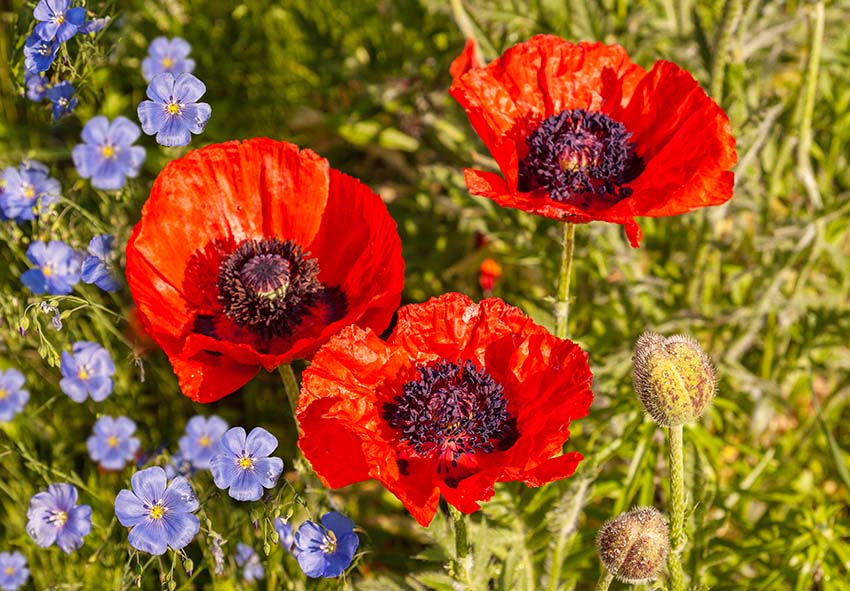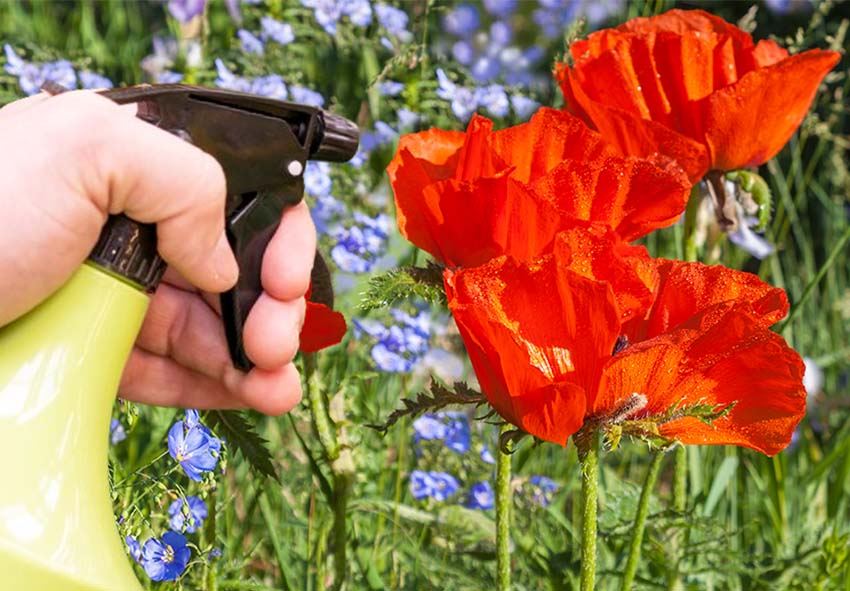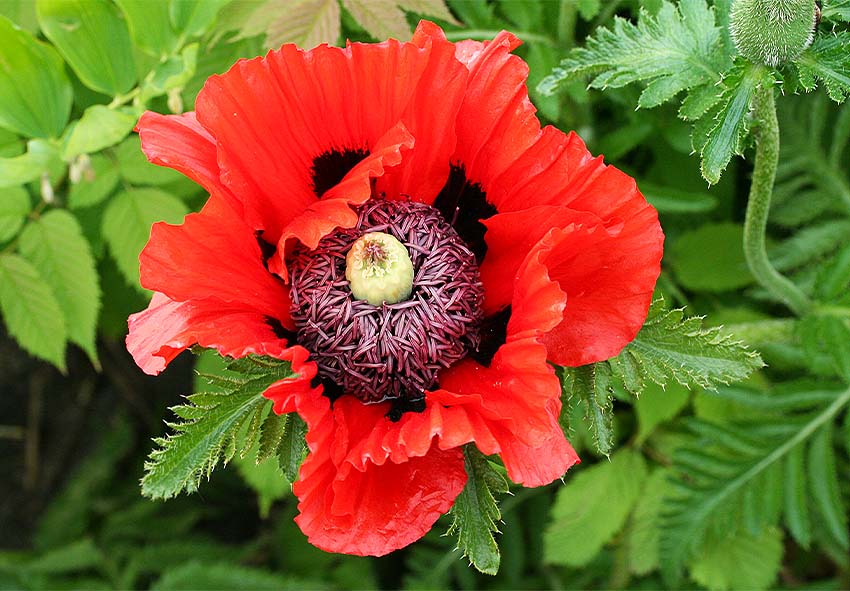In our blog, you’ll discover comprehensive information on identifying, preventing, and managing pests and diseases that threaten Papaver. From aphids to powdery mildew, our articles provide valuable insights and practical solutions to help you protect your Papaver garden and ensure a flourishing display of colorful blooms. Explore our blog for expert advice on pest control and unleash the full potential of your Papaver garden.
Identifying Common Pests and Diseases
In order to effectively manage the health of your Papaver plants, it’s crucial to be able to identify common pests and diseases that may affect them. By familiarizing yourself with these potential threats, you can take proactive measures to prevent and mitigate any damage they may cause. From small insects like aphids to fungal diseases like powdery mildew, understanding the signs and symptoms of common pests and diseases is the first step towards maintaining a vibrant and thriving Papaver garden.
Aphids
Aphids are small, soft-bodied insects that often cluster on the undersides of Papaver leaves and flower buds. They can be various colors, including green, yellow, or black. Aphids feed on plant sap, causing leaves to curl, distort, and yellow. Honeydew secreted by aphids attracts ants and can lead to the growth of sooty mold on affected plants.
Powdery Mildew
Powdery mildew is a fungal disease that appears as a white or gray powdery substance on the leaves, stems, and buds of Papaver plants. It thrives in warm, humid conditions and can spread rapidly in crowded or poorly ventilated areas. Powdery mildew weakens plants and reduces their vigor, affecting overall growth and flowering.
Slugs and Snails
These common pests can wreak havoc in gardens, particularly on delicate Papaver foliage and shoots. Understanding their behavior and the signs of their presence is crucial for effective pest management. Dive into this list to learn more about identifying, preventing, and controlling slug and snail infestations in your Papaver garden:
- They feed voraciously on the foliage and tender shoots of Papaver, causing damage such as ragged edges and holes in the leaves.
- These pests are most active during the night or in periods of high humidity, making them difficult to detect during the day.
- Young seedlings and newly emerged shoots are particularly susceptible to slug and snail damage.
- The presence of slime trails left behind by slugs and snails is a telltale sign of their infestation in Papaver gardens.
Preventative Measures for Pest and Disease Control

Implementing preventative measures for pest and disease control is essential for safeguarding the health and vitality of your Papaver plants. By adopting proactive strategies, such as cultural practices and organic remedies, you can create an environment that minimizes the risk of pest infestations and fungal infections. These measures not only help maintain the overall well-being of your garden but also reduce the need for chemical interventions, promoting a more sustainable and eco-friendly approach to plant care.
Cultural Practices
Implementing good cultural practices can help prevent pest and disease problems in Papaver plants. This includes maintaining proper spacing between your dutch plants to promote airflow and reduce humidity, watering at the base of plants to avoid wetting foliage, and removing plant debris and weeds to eliminate hiding places for pests and pathogens.
Organic Remedies
Using organic remedies can effectively control pests and diseases on Papaver plants while minimizing harm to beneficial insects and the environment. Options include neem oil, insecticidal soap, and botanical insecticides derived from natural plant extracts. These products can be applied as foliar sprays or soil drenches according to label instructions:
| Organic Remedies | Application | Description | Advantages |
| Neem Oil | Foliar Spray | Neem oil is derived from the seeds of the neem tree and acts as a natural insecticide and fungicide | Effective against a wide range of pests and fungal diseases |
| Insecticidal Soap | Foliar Spray or Soil Drench | Insecticidal soap is a mixture of potassium salts of fatty acids that disrupts the outer coating of insects, leading to dehydration and death | Safe for beneficial insects and environmentally friendly |
| Botanical Insecticides | Foliar Spray or Soil Drench | Botanical insecticides are derived from plant extracts and can control a variety of insect pests | Less harmful to non-target organisms than synthetic chemicals |
| Diatomaceous Earth | Dusting | Diatomaceous earth is a powder made from fossilized algae and has abrasive properties that damage the exoskeletons of insects | Long-lasting and effective against crawling pests |
Integrated Pest Management Strategies

Integrated Pest Management (IPM) strategies provide a holistic approach to pest control, emphasizing proactive measures and environmentally friendly solutions. By incorporating monitoring and early detection techniques, as well as biological controls, IPM aims to manage pest populations effectively while minimizing harm to beneficial insects and the environment. By implementing IPM strategies, you can maintain a balanced ecosystem in your Papaver garden, reducing reliance on chemical pesticides and fostering long-term plant health and resilience.
Monitoring and Early Detection
Regular monitoring of Papaver plants for signs of pest infestation or disease symptoms is essential for early detection and prompt intervention. Inspect plants carefully for aphids, powdery mildew, and signs of slug or snail damage, and take action at the first sign of trouble to prevent further spread and damage.
Biological Controls
Biological controls, such as beneficial insects and nematodes, can be used to manage pest populations in Papaver gardens. Predatory nematodes are microscopic roundworms that feed on soil-dwelling pests such as slugs, snails, and insect larvae. They enter the bodies of their prey and release toxins that kill them, effectively controlling pest populations in the soil. These nematodes are harmless to plants, animals, and humans, making them safe and environmentally friendly options for pest management in gardens.
These predatory nematodes can help control slug and snail populations in the soil:
- Ladybugs: Ladybugs, also known as lady beetles or ladybird beetles, are small, brightly colored insects with distinctive spots on their wings. They are voracious predators of aphids, mealybugs, and other soft-bodied insects, making them valuable allies in biological pest control.
- Lacewings: Lacewings are delicate, green or brown insects with translucent wings and large, prominent eyes. Both adult lacewings and their larvae are predatory, feeding on aphids, mites, and small caterpillars. They are particularly effective in controlling aphid populations in gardens.
- Parasitic Wasps: Parasitic wasps are small, often inconspicuous insects that lay their eggs inside or on the bodies of other insects. The developing wasp larvae feed on their host, eventually killing it. Many species of parasitic wasps target caterpillars, aphids, and other garden pests, helping to reduce their numbers.
Introducing these beneficial organisms into the garden can help maintain a balance between pests and their natural enemies, reducing the need for chemical interventions.
Conclusion
Effectively managing pests in Papaver gardens is crucial for maintaining the health and vitality of these beloved plants. By identifying common pests and diseases, implementing preventative measures, and adopting integrated pest management strategies, gardeners can safeguard their Papaver plants from damage and ensure a thriving garden. Whether it’s combating aphids, powdery mildew, or slugs and snails, there are numerous organic remedies and biological controls available to help control pest populations while minimizing harm to beneficial insects and the environment. With careful attention and proactive pest management techniques, gardeners can enjoy beautiful, pest-free Papaver blooms all season long.
Frequently Asked Questions (FAQs) about Pest Control for Papaver
1. Why is pest control important for Papaver plants?
Pest control is crucial for Papaver plants to protect them from common pests and diseases that can damage or even kill the plants. By implementing effective pest management strategies, gardeners can preserve the health and vitality of their Papaver garden and ensure a beautiful display of blooms.
2. What are some common pests and diseases that affect Papaver plants?
Common pests that may infest Papaver plants include aphids, slugs, snails, and powdery mildew. These pests can cause damage to the foliage, stems, and flowers of Papaver, leading to stunted growth, reduced flowering, and overall decline in plant health.
3. How can I identify pest infestations in my Papaver garden?
Look for signs of pest damage, such as chewed leaves, distorted growth, or the presence of pests themselves, such as aphids or slugs. Additionally, keep an eye out for symptoms of diseases like powdery mildew, such as white or gray powdery patches on the leaves and stems.
4. Can I order Holland papaver from your online store?
Certainly! At our online store Dutch-bulbs.com, we offer a wide selection of Papaver plants, including varieties sourced from Holland. You can browse our inventory to find Holland Papaver plants that suit your preferences and gardening needs. We take pride in offering high-quality plants sourced from reputable growers, ensuring that you receive healthy and vibrant specimens for your garden. Feel free to explore our online store and place your order for Holland Papaver plants today!
5. How can I prevent pest infestations in my Papaver garden?
Implement preventative measures such as practicing good garden hygiene, providing proper plant care, and promoting biodiversity in the garden. These strategies can help deter pests and reduce the risk of infestations in Papaver plants.
Published: 25.04.2024

